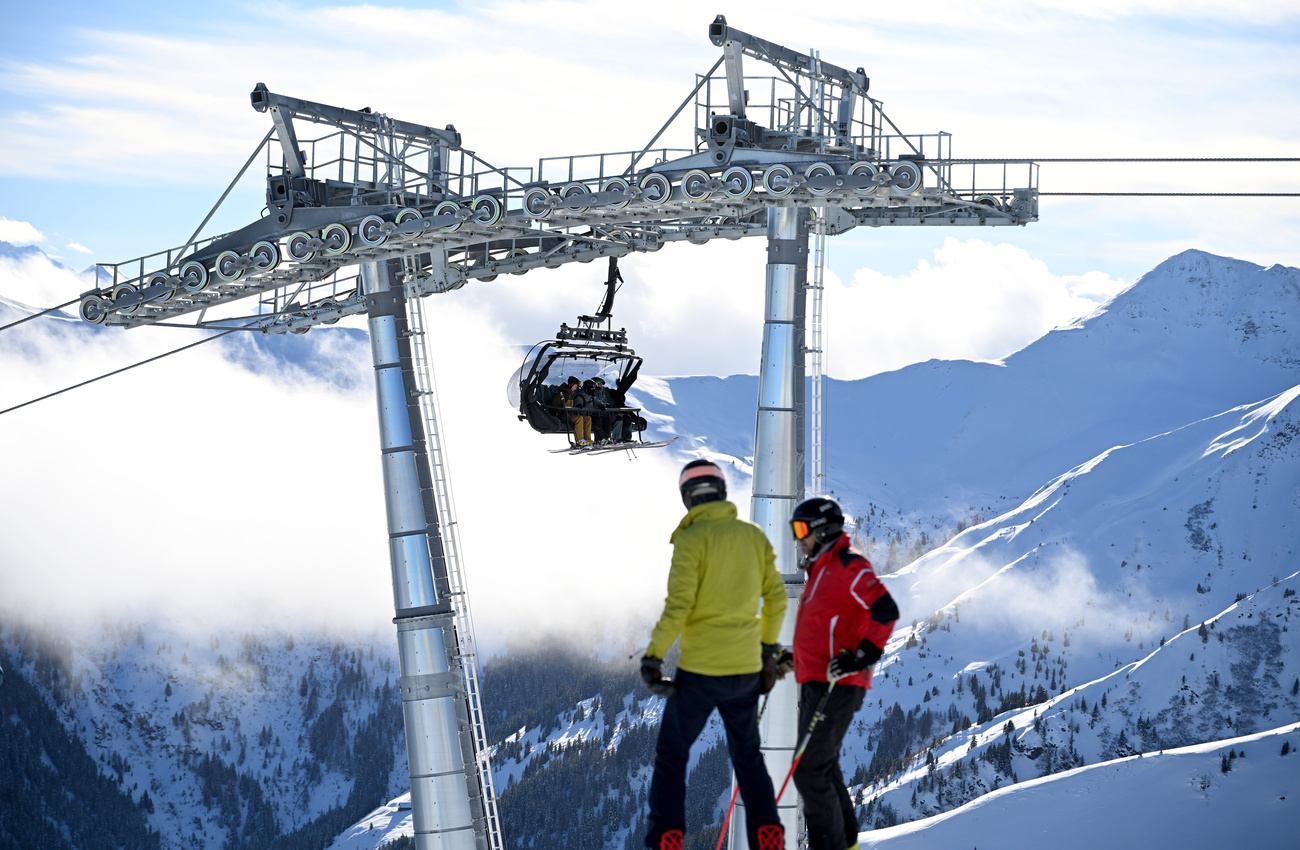
Fewer Swiss families will be able to afford skiing in Switzerland

Swiss families will have to dig much deeper into their pockets to take a skiing holiday. For tourism expert Jürg Stettler, this is only the start.
As of February 2024, a family of four will pay one third more for a week’s skiing holiday in Switzerland than in the previous year. These are the findings of a study conducted by Swiss Bank Cler in cooperation with the Swiss economic consultancy institute BAK Economics.
Jürg Stettler heads the Institute for Tourism and Mobility at Lucerne University of Applied Sciences and Arts and specialises in sustainable development in tourism. He spoke to Swiss public television, SRF, about this troubling trend.
Swiss public television, SRF: Can an average Swiss family still afford a ski holiday in Switzerland?
Jürg Stettler: It’s already too expensive for many people today. Of course, people are increasingly asking themselves whether they still want to afford it. People used to have no other option, but now they have alternatives.
SRF: What alternatives are there?
J.S: One alternative is that people don’t ski during their winter holidays, but do other sports instead: snowshoeing, snow hiking, sledging. This allows you to avoid the high cost of sking to a certain extent, but as soon as the transport facilities, such as gondolas, are needed to get up the mountain, higher prices hit families there too.
SRF: Why is skiing getting more expensive?
J.S: The cost of preparing the ski slopes is getting much more expensive. This is a consequence of climate change. Today, it is assumed that ski slopes below 2,000 metres above sea level will no longer function without artificial snow. Additionally, the transportation to the mountains are modernising. In the past, many places had simple ski lifts. Today, chair lifts and cable cars have become for efficient and move faster, this is an added expense for the region.
SRF: Many Swiss ski resorts have introduced dynamic prices, meaning that some days are cheaper than others. Does this exacerbate the problem?
J.S: For people on a tight budget, dynamic prices are an advantage if they book early or are flexible in the days they choose to go skiing. The railways have succeeded in transferring some risk to skiers. Previously, people could book a trip to the mountains at short notice, depending on the weather and snow conditions. While that is still possible, booking short notice has become more expensive due to these dynamic prices, especially during the high season. This is unfortunate for families with children who are bound to school holiday schedules.
SRF: What about overnight stays?
J.S: Prices for overnight stays have also risen. While hotels have had dynamic prices for some time, it’s the same game here: Those who are tied to the school holiday schedules pay more as more people are booking during these times.
SRF: Are fewer people actually going on skiing holidays today than compared to 20 years ago?
J.S: The number of skiers has not decreased significantly in the last 20 years. However, people are skiing less often. This has to do with the fact that fewer people own their personal ski equipment. Renting ski equipment is an additional cost, increasing the overall cost of a skiing trip. Today, more ski resorts offer a discounted season pass. Those who purchase this pass tend to go skiing more often, because with this pass they can be more spontaneous in when they choose to go. But you have to be able to afford it.
SRF: How do you think ski tourism will develop in Switzerland?
J.S: If global warming continues, the forecasts show that it will become increasingly difficult for ski resorts to keep snow on the slopes. In the long term, skiing will become a leisure activity that fewer people will be able to afford.
Translated from German by DeepL/amva

In compliance with the JTI standards
More: SWI swissinfo.ch certified by the Journalism Trust Initiative

























You can find an overview of ongoing debates with our journalists here . Please join us!
If you want to start a conversation about a topic raised in this article or want to report factual errors, email us at english@swissinfo.ch.